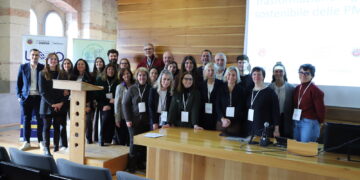The Covid-19 pandemic has put the Italian healthcare sector under severe strain in terms of organisational effort, with a number of significant consequences for healthcare workers in terms of work overload and psychological distress. There are many factors that impact on the emotional well-being of healthcare staff: from the complexity in treating Covid-19 patients to overcrowding; from the difficulty in interpreting the clinical picture, and the lack of well-established treatment protocols for the disease, to the fear of infection.
A research project – the first of this kind in Europe – named ‘Distress-H-Covid’ has just been launched by a team of the Psychiatry division of the Department of Neuroscience, Biomedicine and Movement at the University of Verona. The aim is to assess the psychological impact of the Covid-19 outbreak on the university and hospital staff working at the two hospitals that are part of AOUI – University Hospital of Verona. The scientific supervisor of the project is Antonio Lasalvia, supported by Francesco Amaddeo and Chiara Bonetto. Stefano Porru and Angela Carta from the Occupational Medicine division of the Department of Diagnostics and Public Health also take part in the project.
“Hospital staff – explains Lasalvia – appears at high risk of developing symptoms of emotional distress, in terms of depressive disorders, anxiety and burn-out syndrome. Such problems, if not recognised at an early stage and not treated with appropriate pathways of care, can cause medium and long-term harm to health professionals in their personal and private lives, as well as in their social and working relationships. This study will make it possible to determine the real extent of the issue, its evolution over time and the critical factors that are at the basis of the development of psychopathological problems in healthcare workers during a pandemic. The study will include a first survey to be administered in these weeks, the so-called ‘Phase 1’ of the pandemic; a second survey will be administered two months after the start of the study in ‘Phase 2’, and a third will follow after one year. These surveys are aimed at about 6,500 healthcare staff, including university and hospital contracted staff and doctors in specialist training, and we expect the results of this study to be remarkable if the desired response rate is achieved” adds Lasalvia.

























